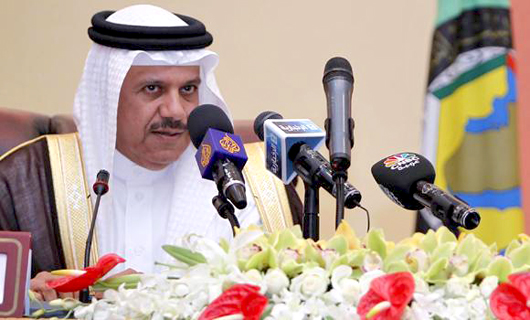
Riyadh, Jul 10: The US Assistant Secretary of State for Democracy, Human Rights and Labor has been slammed by GCC Secretary-General Abdullatif Al-Zayani, for his interference in Bahrain’s internal affairs.
Al-Zayani voiced his “dismay” over the attitude of Tom Malinowski, who met with only one segment of political society during his official tour of duty to Bahrain this week.
“This kind of interference in the GCC’s domestic affairs is a violation of diplomatic norms and the principles of good neighborliness,” said Al-Zayani in a statement.
GCC officials said that safeguarding Bahrainis' rights is the responsibility of its leaders, who have promoted “security and stability” across Bahrain.
Referring to this political episode that has caught the attention of local and international media, Al-Zayani said: “The US diplomat’s holding meetings with representatives of a certain political segment, excluding other major components of Bahraini community … is deemed a form of interference in Bahrain’s internal affairs.”
Al-Zayani added: “This attitude will not help build confidence among Bahrainis on the US stance toward Bahrain’s crisis nor will it support its positive reform process.”
The US official was ordered to leave Bahrain on Monday after meeting with members of the leading Shiite opposition group.
Malinowski, who arrived in Bahrain on Sunday for a three-day trip, did not meet political and social workers currently supporting the Bahraini leadership.
US State Department spokeswoman Jen Psaki said that the Bahraini government “is well aware that US government officials routinely meet with officially recognized political societies.”
Psaki said “Malinowski is on a visit to reaffirm and strengthen our bilateral ties and to support King Hamad’s reforms and reconciliation efforts at an important time, particularly given events elsewhere in the region.”
The visit of the US official was coordinated far in advance and warmly welcomed and encouraged by the government of Bahrain, said Psaki.
Despite the diplomatic tiff, Bahrain provided assurances that ties with the US remain sound. “The government of Bahrain asserts that this should not in any way affect the two countries’ relationship of mutual interest,” according to a statement.






Comments
Add new comment